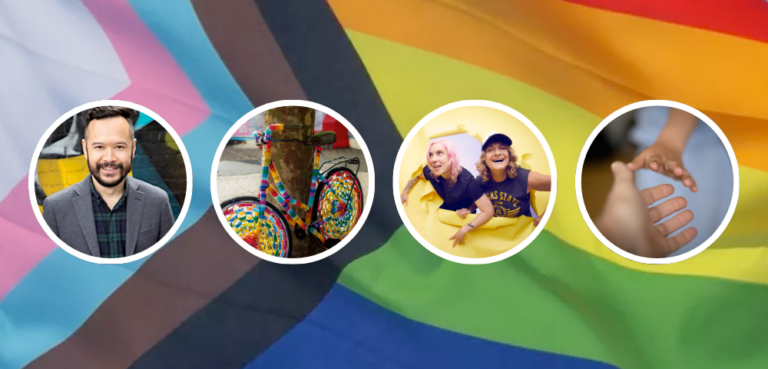
Activists Demand An End To Forced Anal Exams In Sri Lanka

In shocking news out of Sri Lanka, a report by Human Rights Watch (HRW) and Colombo-based Equal Ground, has shown that authorities had subjected seven LGBTQI persons to forcible anal and vaginal examinations between 2017-2020 looking for proof of homosexual conduct in their criminal prosecutions.
In a statement Rosanna Flamer-Caldera, executive director of Colombo-based Equal Ground called on the Sri Lankan government to end the targeting of LGBTQI persons.
“The recent evidence of violence and harassment against the LGBTQI community by law enforcement here is gravely concerning. Sri Lanka must respect its commitment to the UN to protect the fundamental rights of LGBTQI people, including by ending arbitrary arrests and by banning torture and other mistreatment by the authorities.”
The organisations as well as the activists have called on the Sri Lankan government to end the practise of conducting the unscientific and unethical practise of anal examinations and repeal the law that criminalises consensual same sex relations.
Sections 365 and 365A of the Sri Lankan Penal Code – a 135-year-old British colonial law – criminalises “carnal intercourse against the order of nature” and “gross indecency with another person.” The law has been used to criminalise consensual same sex relations and the offence is punishable with a jail term of up to 10 years.
HRW said that the examinations that were conducted on the seven people, “which include forced anal examinations and a forced vaginal examination, are a form of sexual violence as well as cruel, inhuman, and degrading treatment that can rise to torture.”
In six cases relating to people being prosecuted for consensual same sex relations, the prosecution had presented anal examination reports, HRW reported. The test results were ostensibly presented to court as evidence that the people had a history of anal penetration. According to HRW, one of the men told his lawyer that police had whipped him and sent him to a judicial medical officer for the anal exam. Another man was given the option to reject an anal exam but was told that doing so would mean a presumption of guilt.
HRW cited another case in 2019, where a trans man was forced to undergo a “virginity test” where a judicial medical officer inserted two fingers in the vagina. The police tried to charge the trans man for the offence of same sex relations, but the magistrate dismissed the case based on his marriage to a cisgender woman.
Star Observer spoke to Aritha Wickramasinghe, Equality Director of iProbono, a global organisation that provides access to justice through its network of pro-bono lawyers. Wickramasinghe and iProbono’s network of lawyers have been involved in advising and representing the LGBTQI persons who are being prosecuted for consensual same sex relations in Sri Lanka.
Wickramasinghe said that most of the challenges faced by the LGBTQI community arise out of criminal sanctions imposed as a result of sections 365 and 365A of the Sri Lankan Penal Code
“These examinations (anal and vaginal tests) have legal sanction. They are done by Justice Ministry employed Judicial Medical Officers and these reports are presented to Magistrate Courts as a matter of routine as evidence to prove anal or vaginal intercourse between consenting adults,” said Wickramasinghe.
While the HRW documents the actions in the last three years, Wickramasinghe said it was not new and pointed to ongoing systemic problems.
“This has been the practice for as long as this law has been in place. It is only now that the community is speaking out about these issues and publicly exposing it. As an immediate measure the Justice Ministry must instruct all its employed medical officers to immediately halt conducting such examinations. Sri Lanka’s Medical Council also must issue such a notice.
“The Inspector General of Police must also immediately issue a circular to all police officers instructing the police to stop all arrests and prosecutions of consenting adults under sections 365 and 365A of the Penal Code. These arrests and prosecutions are anyway unconstitutional as has already been confirmed by the Attorney General on several occasions. Unfortunately, this message has not gone to the Police or the Judicial Medical Officers.”
The police mostly steer clear of community spaces and activists and the target of their action is often individuals in private spaces. “They know that activists have a fuller knowledge of the law and our rights. The police are pretty much exploiting social stigma over homosexuality to largely go behind people in the closet or who are more discrete about their sexual orientation,” Wickramasinghe said.
He pointed out that in 2016, there were 33 prosecutions following such raids and in 2018 there were around nine prosecutions.
“Arrests and raids are not happening in community spaces. They have taken place in private spaces where people have been arrested and prosecuted for homosexuality.”
Neighbouring India had a similar British-era law – section 377 of the Indian Penal Code enacted in 1861. The Supreme Court of India in 2018 read down the law and decriminalised consensual same sex relations.
In Sri Lanka, a judicial review of legislation is not possible, said Wickramasinghe, but added there could still be a legal route to stop the law being used against LGBTQI people.
“Considering the law does not expressly criminalise homosexuality, a challenge can be mounted against the unconstitutional application of the law against LGBTQI people. But our biggest challenge has been convincing people most affected by these arrests to take the challenge to the Supreme Court. Most defendants in these cases have been so mistreated by the justice system they just want to be free and not see a court in their life ever again.
“Members of the LGBTQI community, however, continue to engage with the government and the Justice Ministry to reform the penal code and end the persecution of LGBTQI Sri Lankans,” concluded Wickramasinghe.









